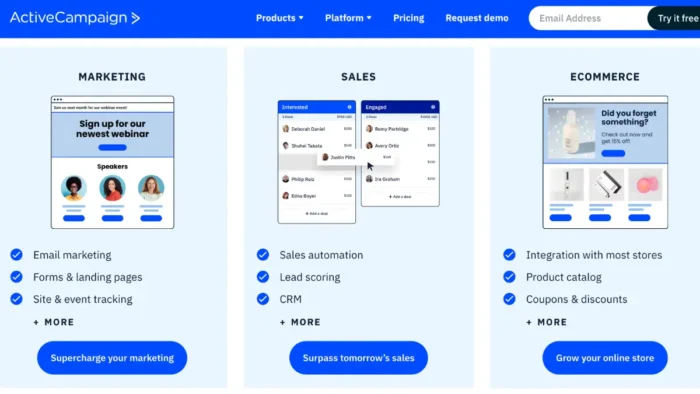Strategic decision-making is a multilayered process that requires access to accurate and relevant information. Unlocking the power of company information databases has become a cornerstone in shaping effective market research strategies. This dynamic approach goes beyond conventional methods, offering unparalleled insights into market trends, competitor landscapes, and consumer behavior. Understanding how to leverage these company information databases becomes a strategic imperative when organizations manage a complex data network.
This article explores the significance of leveraging company information databases for market research and how it contributes to strategic decision-making.
What Is a Company Information Database?
A company information database is a comprehensive repository that stores a wealth of data about various businesses. Databases organize and structure data to give users a broad perspective on a company’s performance, market position, and overall health by drawing information from financial records, industry reports, customer feedback, and news articles.
Employing these databases for market research helps your business to make informed decisions.
How To Use Company Information Database for Market Research
Below are some ways how you can use a company information database for market research:
1. Access Comprehensive Business Profiles
One of the key benefits of using a company information database is its ability to provide a holistic view of a business. You can gain insights into a company’s history, key personnel, financial performance, legal status, and strategic direction. This provides a wealth of information that can help you make informed decisions.
Suppose you want to expand into new markets or seek partnerships. In that case, a company information database can help you identify potential partners.
Also, these databases often come with advanced search and filtering options, allowing you to find exactly what you’re looking for quickly and efficiently. You can filter companies based on factors like industry, location, size, revenue, and more, making your search process highly targeted and effective.
2. Analyze Market and Industry Trends
Company information databases offer valuable tools for conducting market analysis and identifying industry trends. By analyzing the financial performance of key players within a particular industrial sector or specific NAICS, your business can gain insights into market dynamics, growth patterns, and potential areas for investment.
These databases often include industry reports and analyses, helping you as a decision-maker stay up-to-date on emerging trends and technological advancements that may impact your business strategies.
3. Conduct Competitor Intelligence
Conducting competitor intelligence through company information databases is a strategic move to acquire more repeat customers. It is imperative for you as you seek a comprehensive understanding of the competitive landscape. One key aspect for you is benchmarking your performance, comparing your performance metrics against your competitors.
This allows you to assess your relative standing in the market, identify areas where you excel, and recognize areas that may require improvement.
Understanding how your competitors operate and perform allows you to set realistic performance goals and strive for continuous improvement.
Identifying areas for differentiation is another critical use of competitor intelligence for you. By analyzing the strengths and weaknesses of rival companies, you can identify your unique selling propositions and areas where you can distinguish yourself in the market. This insight is priceless for developing marketing strategies, product positioning, and customer value propositions that set your company apart from its competitors.

4. Assess Risk and Due Diligence
Making strategic decisions involves managing risks effectively. Company information databases facilitate risk assessment by providing data on a company’s financial stability, debt levels, and overall risk profile. This information is precious when entering partnerships, mergers, or acquisitions.
Conducting due diligence through your company database can help you evaluate the rewards and risks of opportunities to make informed and calculated decisions.
5. Gain Customer Insights
Customer behavior and preferences lay the ground for tailoring products and services. Your company information database includes customer reviews, feedback, and satisfaction ratings, offering valuable insights into consumer preferences. Analyzing this information helps businesses refine their marketing strategies and improve product offerings and overall customer satisfaction.
6. Comply With Regulations And Laws
Ensuring compliance with regulations and laws is crucial for your business, guaranteeing ethical operations within legal boundaries. Your company’s information database is instrumental in documenting compliance with regulatory requirements, legal standing, and ethical practices. This information is essential for mitigating risks, allowing proactive measures to address potential non-compliance issues.
Additionally, your database contributes significantly to trust and reputation management by boosting credibility and showcasing your commitment to corporate social responsibility.
Beyond legal obligations, you must also consider ethical aspects such as fair labor practices, environmental responsibility, and social initiatives, which are increasingly crucial for companies that want long-term success in a dynamic regulatory landscape.
Conclusion
Company information databases emerge as indispensable tools for conducting thorough market research, providing insights into various aspects of a business and its industry. From competitor intelligence to market trends and regulatory compliance, these databases empower businesses to make informed decisions aligned with their goals and mitigate potential risks.
As technology advances, the significance of utilizing company information databases for market research will grow. Businesses that adopt and incorporate these tools into their decision-making processes are better positioned to navigate the complexities of the modern business landscape and attain sustainable success.





